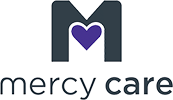
Depression Treatment

Depression Treatment in Arizona
Accessible Care for Lasting Relief
20% of adults in Arizona were diagnosed with a depressive disorder as of 2022. That’s not counting the 27% of Arizonan adults who couldn’t get the mental healthcare they needed in 2021, whose mental health conditions go undiagnosed.
We know that sometimes, depression makes it difficult to get out of bed every day, let alone out the door. At Lifeline Behavioral Health, we aspire to make mental healthcare more accessible to everyone across Arizona through on-site counseling, telehealth options, and a combination of both.
Deciding to seek treatment isn’t easy, either. It takes courage, but you already have everything you need to get started. Let’s take the next steps together.

What We Treat
Depression
Depression can make the world feel heavy, draining joy from once-fulfilling activities and replacing it with persistent sadness, exhaustion, or hopelessness. For many, it can feel as though life lacks meaning, making even daily tasks feel overwhelming.
While depression may seem insurmountable, effective treatment is available, and healing is possible. Recovery is not about simply waiting for things to improve. It involves taking proactive steps, accessing the right support, and working with mental health professionals who can provide evidence-based strategies for lasting change.
At Lifeline Behavioral Health, our depression treatment specialists offer individualized therapy and treatment options to help you regain a sense of purpose and emotional stability. If it is interfering with your life, seeking help is the first step toward reclaiming your well-being. You are not alone, and support is available.
A Lifeline to the Life You Deserve
Taking the first step toward healing is powerful, and our team is here to guide and support each client every step of the way.
How We Treat
Your Depression Treatment Options With Lifeline Behavioral Health
At Lifeline Behavioral Health, our team helps you build a healthier life with fewer symptoms and more stability. We address a wide range of mental health concerns through individual counseling, group therapy, and specialized programs tailored to your needs.
Our therapies include Cognitive Behavioral Therapy (CBT) to reframe unhelpful thoughts, Dialectical Behavioral Therapy (DBT) to manage strong emotions, and groups created for first responders, veterans, parents, women, men, and those facing substance use challenges. For more intensive care, we offer an Intensive Outpatient Program (IOP) with weekly individual and group sessions, or a Partial Hospitalization Program (PHP) with daily therapy. On-site housing is also available for those who need added support.

Defining a Common Condition
What Is Depression?
Depression is a condition consisting of frequent low mood, low energy, and sadness. It can impact every area of your life, from how you eat and sleep to your relationships and job performance. It can be incredibly difficult to manage, but depression is treatable, and it’s possible not only to feel better but to make a full recovery.

Understanding Depression
It’s Different From Sadness or Grief
Sometimes, it can be hard to differentiate between depression and significant sadness or grief. These emotions are perfectly normal and even healthy to experience. Sadness and grief turn into depression when they’re persistent and greatly interfere with your life. Sadness and grief are also usually triggered by certain events. In comparison, depression can be triggered by social and environmental factors too; depression impacts and lasts far longer than sadness alone.

How Common Is Depression in Adults?
Depressive disorders are the second most common mental health conditions in the world, right behind anxiety disorders. While the beginning of this page mentioned the diagnoses in Arizona, another 2023 study indicates nearly 30% of adults in the United States were diagnosed with depression at one point in their lives. In 2021 alone, over 8% of Americans experienced a major depressive episode, with the 18-25 age group experiencing more major episodes than all older ages combined.
Who Is at Risk for Depression?
Anyone is at risk for depression. Depression impacts people from all walks of life, no matter how “good” or “bad” their life may seem. While depression is influenced by our environment, relationships, and habits, there’s not always a specific reason for it, and you can have depression even if it feels like everything else in your life is going right. People often feel the need to “justify” their depression, and this can be a source of shame and turmoil for individuals already carrying a heavy burden. If that sounds like you, know your symptoms are real and just as legitimate as anyone else’s.
Some factors make depression more likely, including:
Family History of Depression
Experiencing a Loss of Any Kind
Trauma
Lack of Support/Isolation
Medical Conditions (especially if chronic)
Substance Use
Taking Medication for Depression as a Potential Side Effect

Where It Starts
How Depression Is Diagnosed
There are multiple depressive disorders outlined in the American Psychiatric Association’s Diagnostic Statistical Manual of Mental Disorders, Fifth Edition (DSM-5), which is commonly used as a guide for diagnosing mental health conditions.
The mental health professional diagnosing you will take careful note of your symptoms, the context they appear in, and your health history. They’ll likely ask a lot of questions to gather the information they need to come to a diagnosis.
According to the DSM-5, someone can be diagnosed if they have five symptoms every day, almost all day, for at least two weeks in a row.
Client Successes
If You Experience These Symptoms, Consider Professional Help
The symptoms outlined in the DSM-5 are:
Feelings of Worthlessness, Guilt, or Shame
Difficulty Concentrating and Making Decisions
Decreases or Increases in Appetite and Weight
Thoughts of Death and Suicide
Depressed/Sad Mood Most of the Day
Loss of Interest or Pleasure in Activities
Noticeable Lethargy
Fatigue and Lack of Energy
To be diagnosed, you must experience at least one of the first two symptoms. It’s important to know that even if you only experience a couple of symptoms on this list, help is available for you, too. You don’t have to meet the DSM-5 criteria for depression for your mental health concerns to be serious or worthy of treatment. If your symptoms are impacting your quality of life, it’s a good idea to get help. We’d love it if you would contact us. Lifeline Behavioral Health can help.
No Insurance? No Problem.
Not everyone has insurance, and that shouldn’t stand in the way of getting help. We offer cash pay options for all services, making care more accessible and straightforward. Many clients prefer cash pay for its flexibility, especially for lower-cost treatments. Reach out to explore your options and get started today.
Healing From Depression in Arizona With Lifeline Behavioral Health
If taking the first step toward getting help for your depression feels intimidating or difficult, it’s okay. That feeling is incredibly common, and it’s also understandable. That doesn’t make it any less important to seek treatment – in fact, it might make it even more important. We encourage you to embrace the challenge and seek professional help for your symptoms.
Lifeline Behavioral Health has been in the business of empowering people to overcome behavioral health conditions for over 20 years. We treat all age groups and offer a safe space for everyone to talk through their concerns and receive the support they need to build a brighter future. Take the first step toward healing.
Healing takes community. Community is your lifeline.
Insurance Coverage
Here at Lifeline Behavioral Health, we understand that paying for care is a number one concern. We accept many types of insurance plans. Don’t see your carrier on the list? Not to worry, just give us a call and we can verify your insurance plan. Our team can also work with you on paying for care outside of insurance or utilizing out-of-network benefits.

















"*" indicates required fields
Frequently Asked Questions about Depression
Can depression go away on its own?
While sometimes depression can go away without formal treatment, this is usually due to lifestyle or environmental changes – it isn’t random. It’s important to seek help for any symptoms of depression. You deserve to live a healthy, fulfilling life.
Can someone with depression live a normal life?
Absolutely. The vast majority of people who undergo treatment for depression live happy, healthy lives.
What are the most effective treatments for depression?
Depression is commonly treated with a combination of psychotherapy and medication. Psychotherapies, such as cognitive-behavioral therapy (CBT) and interpersonal therapy (IPT), help individuals address negative thought patterns and improve interpersonal relationships. Medications, including selective serotonin reuptake inhibitors (SSRIs) and serotonin-norepinephrine reuptake inhibitors (SNRIs), work to balance brain chemicals that affect mood. The choice of treatment depends on the severity and individual preferences.
How long does it take for depression treatments to work?
The onset of relief from depression treatments varies. Antidepressant medications may take several weeks, often 4 to 6, to exhibit their full effects. Psychotherapy’s timeline can differ based on the individual and the specific therapy employed, with some people noticing improvements within a few sessions, while others may require longer.
Are there natural remedies or lifestyle changes that can help alleviate depression?
Yes, lifestyle modifications can complement traditional treatments. Regular physical activity, a balanced diet, adequate sleep, and mindfulness practices like meditation have been shown to improve mood. However, these should not replace professional treatment but can be integrated as part of a comprehensive approach.
What should I do if my depression treatment isn't working?
If current treatments aren’t providing relief, it’s essential to consult with a healthcare provider. They may adjust the medication dosage, switch to a different antidepressant, recommend an alternative therapy, or suggest combining treatments. In some cases, treatments like electroconvulsive therapy (ECT) or transcranial magnetic stimulation (TMS) might be considered.
Can depression return after successful treatment?
Yes, depression can recur. To minimize the risk of relapse, it’s crucial to continue treatment as prescribed, even after feeling better, and maintain regular follow-ups with a healthcare provider. Ongoing self-care and awareness of early warning signs can also aid in preventing recurrence.
Are there side effects associated with antidepressant medications?
Antidepressants can have side effects, which vary depending on the specific medication. Common side effects include nausea, weight gain, sexual dysfunction, and sleep disturbances. It’s important to discuss potential side effects with a healthcare provider, who can help manage them or adjust treatment if necessary.
Is psychotherapy alone effective for treating depression?
For mild to moderate depression, psychotherapy alone can be effective. Therapies like CBT have demonstrated success in treating depression without medication. However, for severe depression, a combination of medication and psychotherapy is often recommended.
How can I support a loved one undergoing depression treatment?
Offering support to someone with depression involves being patient, listening without judgment, encouraging adherence to treatment plans, and assisting with daily tasks if needed. Educating oneself about depression can also provide better understanding and support.

